Blades are created using an ancient Japanese process before Holly adds handles of local wood
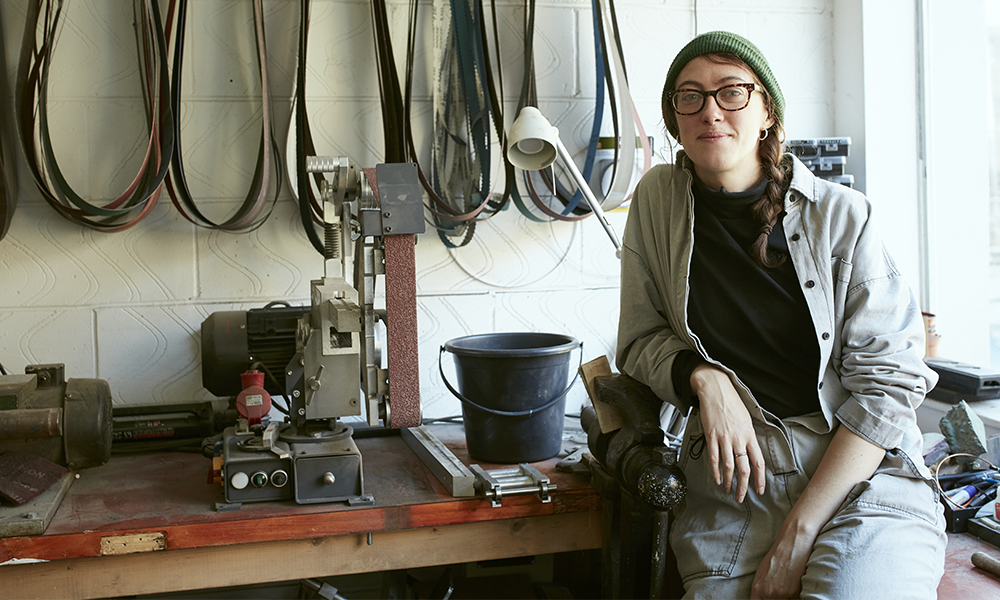
Subscribe to Wharf Life’s weekly newsletter here
BY LAURA ENFIELD
The unique patterns running along the blades made by Holly Loftus are created by hammering together layers of softened steel.
She likens the ancient Japanese process to making pastry.
“It’s like a croissant, but instead of layers of pastry and butter, it’s layers of steel that get laminated by folding them on top of each other over and over,” said the 33-year-old.
“I use heat and pressure and just literally smash them together and they fuse. It makes an edge that is really sharp and long-lasting.”
Like the knives she creates at Cockpit Arts in Deptford, Holly forged her career through sheer force.
She is the only woman she knows of working professionally in the male-dominated field and her hand-forged knives, which cost about £300, sell out every month.
When she happened upon the notion of bladesmithing in 2010, she was a community worker on holiday in America.
The Lewisham resident was both beguiled and baffled when she stumbled across a hobbyist knifemaker at work.
- See Holly’s work up close at Cockpit Summer Festival And Open Studios in Deptford from June 17-19, 2022. Entry is free and visitors will be able to meet a variety of crafters in their workspaces and talk to them about their processes.
“That was the first time that I really thought about knives being made outside of a factory and I remember grilling him about how he made them,” she said.
“It sparked an interest in me, but the first five years of the journey into making knives was only in my head. I couldn’t even figure out how to get started, because it was so alien to me.”
Her uncertainty deepened when she was unable to track down any professional knifemaking courses in the UK at the time.
Self doubt made her question whether she could leave her job, helping pensioners and homeless people, which she’d started as a teenager growing up in Dublin.
“I was excited about making knives, but it took a while for me to feel like I could just give myself permission to make something,” said Holly.
“A part of that was because I had done something I felt was socially useful and that transition has been difficult sometimes.”
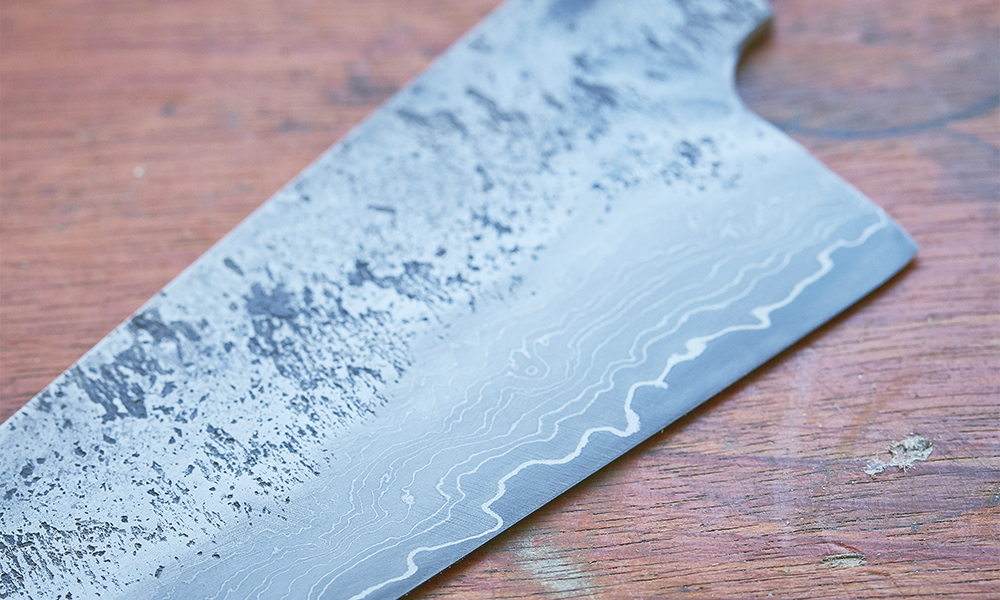
She spent hours scouring internet forums and watching videos, but the nudge to take action only came when a friend bought her a one-day knifemaking course.
“I didn’t really think that I could ever figure out how to do it, because there are so many aspects, different tools and materials and that seemed mental to me,” she said.
“On the course, we just forged a very basic knife, but I decided I was going to figure out how to start pursuing it.
“Before then it all seemed really abstract, so it took away that mental block I had.”
She still had a hard road to follow to turn it into a career.
“In the UK there’s no professional route into knifemaking,” said Holly. “There’s no apprenticeship, no school where you could go to learn it.”
The only vaguely related course she could find was a City And Guilds in forgework in Scotland. Six months later, she quit her job and headed up there.
“I didn’t make any knives, but that’s where I learned to forge using a hammer, which felt like a good foundation,” she said.
“When I passed, it was really satisfying and gave me the confidence to apply for work in the field.”
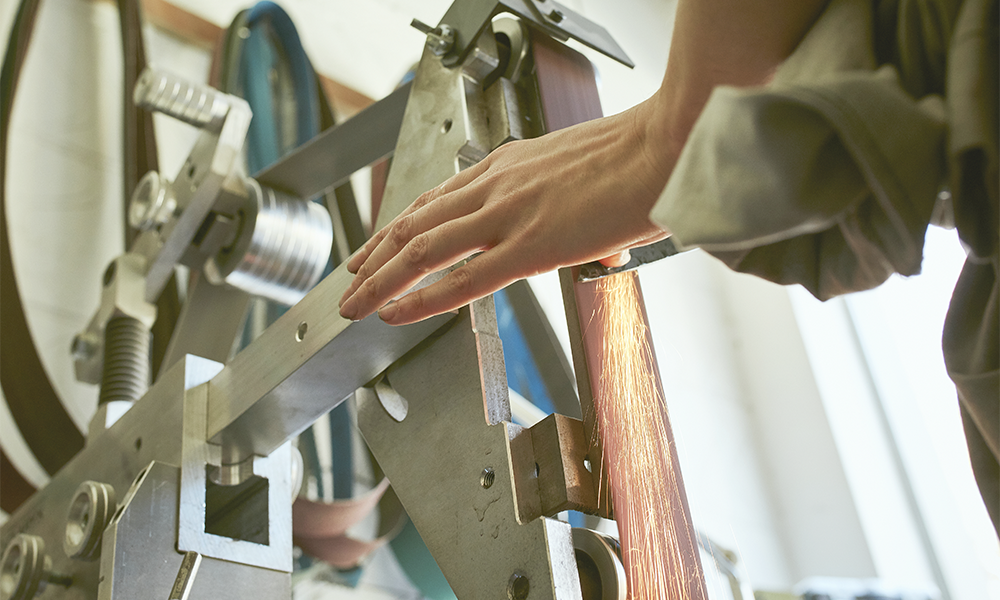
She landed a job with Blenheim Forge where she spent three years learning how to make their Japanese-influenced kitchen knives, using their workshop in her spare time to practise and refine her skills.
“I was really open with them about why I was there and that my plan was to make my own knives. I think they actually believed in me more than I did.
“Even though the forging course gave me a lot of confidence, sometimes when I was actually trying to make knives they were so bad it would knock me down.
“But Blenheim were really encouraging and, over those years, I got so much better.”
In 2020 everything changed. Holly applied for and won the Cockpit Arts/Newby Trust Craft Excellence Award, allowing her to move into the Deptford studios with a year of subsidised rent.
“Without that award, it would have been impossible to go full-time because having the workspace isn’t enough,” she said.
“There’s so much equipment that you need. Having that year meant I could set up properly and get better and get faster on my own.”
Today Holly’s knives are in such high demand that she only releases them in batches every month through a newsletter.
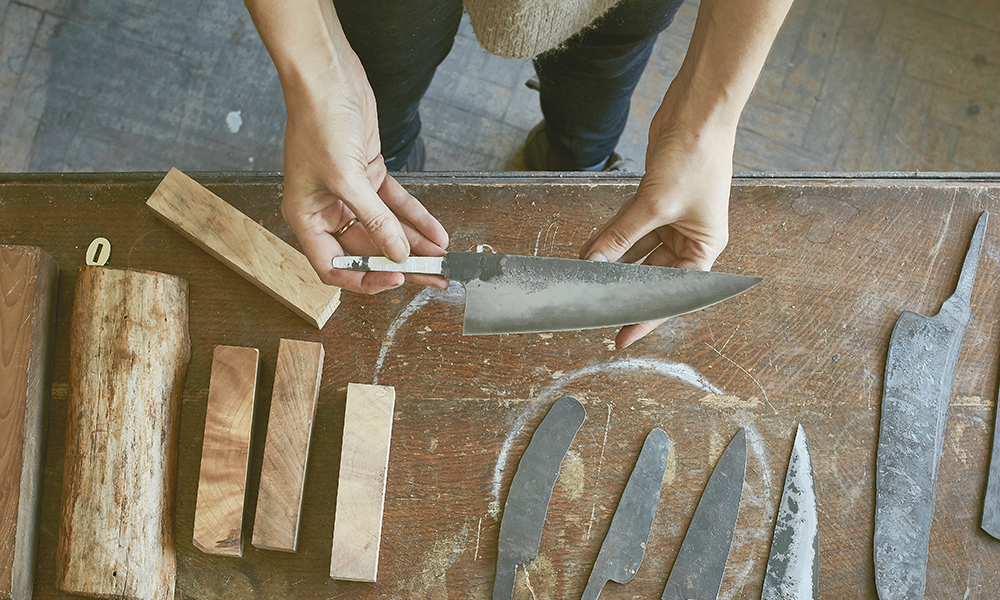
Each knife is handmade using steel from Japan and Sheffield and native wood supplied to her by tree surgeons.
“I have pieces from around where my workshop is or I have quite a lot from Hackney at the moment,” said Holly.
“The way I work means I can do things a factory never would because it would be really inefficient to have a tiny piece of a tree from a small street in London.
“But I can pick out those more interesting, unusual timbers and have enough for a few handles.
“I like hardwoods like cherry and apple. They’ve often been felled because of a fungal species that creates these patterns in the wood.
“I put the pieces through a process that stabilises them by pulling resin through to fill the spaces. It means I can use these them even though they’re partially rotten.”
Holly usually has 30 knives at various stages in her workshop and said they were made to be comfortable for home cooks to use, especially women.
“Lots of women I speak to are afraid of how sharp they are and don’t trust themselves to be able to use a sharp knife,” she said.
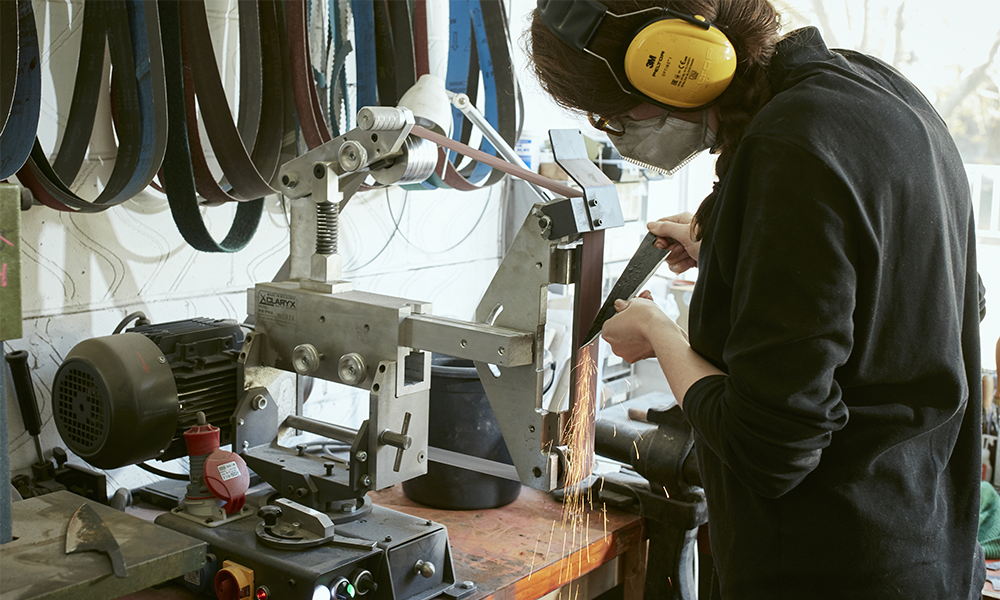
“That’s something I really want to change, because it’s been so satisfying for me to become comfortable with them and I think having a really sharp knife changes how you feel about cooking, it makes it so much easier.
“When I was growing up, the sharpest knife in my house was one of those plastic-handled steak knives and it was sliding about all over the place and made my whole experience of cooking stressful. I would just resort to choosing recipes without chopping – or use a blender.”
Holly said she was terrified of chopping a finger off when she first started bladesmithing, but after two years at Cockpit, she finally feels confident and is proud of what she has achieved.
“It’s amazing. Sometimes I have to really remind myself of that, because I can get so sucked into the details of really wanting to make the best work I can,” she said.
“I haven’t allowed myself to reflect on this before, but it feels important to, now. This is what I wanted and now I’m doing it.”
Read more: How chefs created From The Ashes BBQ in Fish Island
Read Wharf Life’s e-edition here
Subscribe to Wharf Life’s weekly newsletter here
- Laura Enfield is a regular contributor to Wharf Life, writing about a wide range of subjects across Docklands and east London



